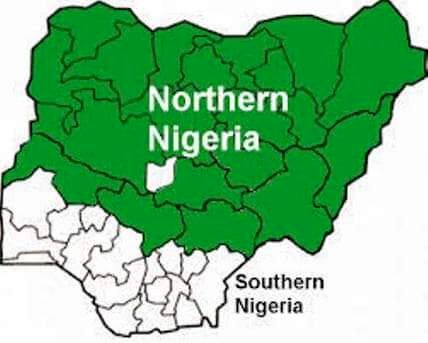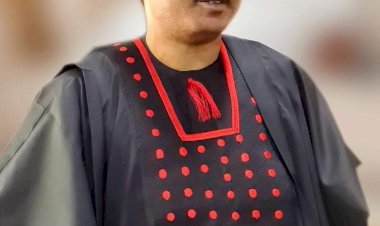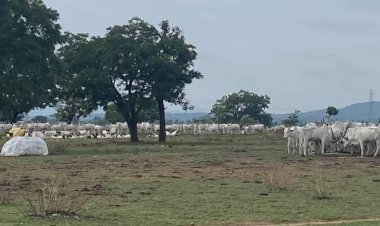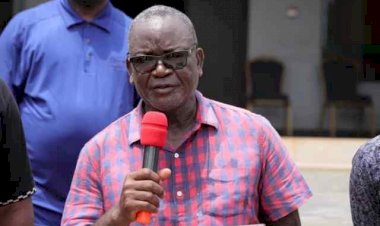FULANI, VILLAINS OR VICTIMS - 5

CONSEQUENCES OF THE JIHAD
As every cause has an effect, the results of the Fulani Jihad was evidenced by how the Fulani affected peoples in the areas they conquered and how they were affected by the conquered peoples, as follows-:
1. The first and greatest impact of the Fulani Jihad in Hausa land was the creation of the vast Caliphate of religio-political nature comprising of Zazzau, Kano, Katsina, Daura, Hadejia, Bauchi, Kazaure, Misau, Jama’are, Katagum, Gombe, Muri, Adamawa, Nupe and Ilorin as emirates. Having achieved that, Usman Dan Fodio retired. But before his retirement, he divided the Caliphate into emirates each headed by an Emir and also divided the Caliphate into two. The North and North-East part with headquarters at Sokoto, he put under his son Muhammadu Bello while the Southern part with headquarters at Gwandu, he put under his younger brother, Abdullahi.
This ended the intermittent and internecine wars in Hausa land and brought the flowering of Islam in Hausaland and the consolidation of Muslim culture first in Hausaland and then in non-Hausa areas such as Nupe, Ilorin and parts of the Benue valley region now called Adamawa.
In addition, the Jihad had, by enthroning Islam, provided the much needed supra-state ideology for integration among the Hausa states and brought a new peace to the Hausa land.
2. The second impact of the Fulani Jihad was in Borno. Even though Islam came to Borno in 1085, which is earlier than its coming to Hausa land; and though the Jihad was unsuccessful in Borno because the Fulani failed to occupy area, the Fulani actually pushed back the Kanuri and seized parts of Borno where the Fulani established the three emirates of Gombe, Hadejia and Katagum which came under control of the Fulani
In Borno, the Fulani Jihad had a second impact. By the early 19th century, Kanem-Bornu was an empire in decline, and in 1808 Fulani warriors conquered Ngazargamu. A profound effect. And even though the Fulani did not occupy Borno, as I said, the Fulani campaign eventually affected it as it inspired a trend toward Islamic orthodoxy.
But most importantly in Borno, not only did the Fulani seized the said three emirates and sacked Birnin Ngazarmu, the then Borno capital, Muhammad al-Kanem (a Shuwa) invited by the Mai (Kanuri) that contested the Fulani advance by forming an alliance of Shuwa Arabs, Kanembu, and other semi-nomadic peoples that pushed back the Fulani in 1814, the last Mai of Borno (a Kanuri) was dethroned by Kanem’s son, Umar (Shuwa) and became king. Thus ending one of the longest dynastic reigns in regional history as the Fulani attack here, led to the change of the dynasty from Mai dynasty (of Kanuri) to Shehu dynasty of Shuwa.
3. In Nupe territory, the Fulani Jihad was no remarkable. There, the Jihad resulted in the creation of Bida emirate with the emergence of Mallam Usman Zaki, the first son of Islamic preacher Malam Dendo, a Fulani man from Gwandu sent from Sokoto to introduce Islam into the Nupe Kingdom. He was the first emir in Bida to become Etsu Nupe ("King of Nupe") and introduced this title in 1856, when he defeated his rival Malam Umar Bahaushe, a Fulani man. Eventually, the Jihad resulted in subsumption of Nupe areas into the Sokoto jihad after which the Nupes were incorporated into the Sokoto caliphate.
4. In Yoruba land too, the Fulani Jihad had profound impact. With Fulani and Muslim penetration into northern Yorubaland, one of the governors of the Alafin of Oyo called Afonja who was based in the province of Ilorin, rebelled against the Alafin which signalled the destruction of the unity of Oyo empire. To effectuate his rebellion, Afonja invited Mallam Alimi (a Fulani from Sokoto), who, with Fulani warriors and slaves, who together with Hausa slaves, defeated the Yoruba soldiers. When the Fulani and Hausa soldiers pushed back the Yoruba army from Ilorin, Afonja became increasingly dominated by the Fulani, and upon his assassination, Alimi’s son, Abd al-Salam, became emir of Ilorin and pledged allegiance to the Sokoto caliphate in 1829.
As a Muslim emirate, Ilorin subjugated several towns in Yorubaland and destroyed the Oyo capital, Oyo Ile (Old Oyo) in 1837. Abd al-Salam conducted a jihad toward the sea and was only stopped by the Ibadan victory over his cavalrymen at Oshogbo in 1840. The Ilorin Emirate are Fulani, and the Hausas there called Gobir, dominate Ilorin.
5. The Jihad has another unusual impact on both the Hausa and the Fulani. The loss of political power by the Hausa aristocracy was compensated by the Fulani’s loss of the Fulfulde language and Fulani culture to the Hausa people. This has profound influence on both tribes.
It is this loss and gain by both tribes that led to the emergence of a tribe called “Hausa-Fulani” which is unique to Nigeria. In fact Dr. Yusuf Bala Usman has argued, to which I agree, that due to long period of co-existence between the Hausa and Fulani, the ethnic line between them had become remarkably blurred. This new found solidarity, as argued by Ikime, has been enhanced by a common religion and culture.
The creation of the unique tribe called ‘Hausa/Fulani was made possible by a number of factors thus: -
i. when they conquered the Hausa rulers, the Fulani emirs turned away the Hausa men from their houses and occupied them as rulers. However, no Fulani emir turned out the Hausa women from their houses, who the Fulani emirs kept as concubines. Since children of concubines can also be emirs, as is the case in Arab culture, the result in Hausa land was the emergence of new class of emirs of Fulani blood and Hausa tongue or what the Fulani call ‘Ee’am Fulbe, demgal Hausa’. This is a significant factor that further solidified the creation of the unique ‘Hausa/Fulani’ tribe as the Fulani emirs ‘intermarry’ into the old Hausa ruling class.
Then there is the economic factor to this. While the Fulani were widely ‘lamlambe’, Modibb’en, herders and military commanders, the Hausa were generally farmers and traders. Because of the Hausa people’s control of markets, their language had to become the medium of commerce in markets in cities and villages. As time goes by and Fulani started venturing into commerce, it became necessary for them to speak the language of commerce - Hausa, to the detriment of Fulfulde.
Political dimensions could be added to this. To create one political front in the Nigerian state, as Fulani did not have the numbers, the creation of a tribe called the ‘Hausa-Fulani’, was a necessity. Even today in politics, the Hausa-Fulani, control the polity.
TO BE CINTINUED TOMORROW...
to an expansion of agriculturist population and cultivated land at the expense of pasturelands; deteriorating environmental conditions, desertification and soil degradation;[7] population growth;[2] breakdown in traditional conflict resolution mechanisms of land and water disputes; and proliferation of small arms and crime in rural areas.[8] Insecurity and violence have led many populations to create self-defence forces and ethnic and tribal militias, which have engaged in further violence. The majority of farmer-herder clashes have occurred between Muslim Fulani herdsmen and Christian farmers, exacerbating ethnoreligious hostilities.
Constituting the highest number of illiterates on the planet
ON 6TH JANUARY, 2018
NURA ALKALI WROTE
“Girei Musa Salihu Allah sene, you can give all the excuses in the world, but the fact remains that nomadism and open grazing harm the Fulani more than anyone else. Forget the clashes with farmers. You are a lawyer, a well-accomplished retired officer and a Fulani. Do you feel proud that 2 million of your kinsmen among the nomads can't read ABC and have no place to call their home or LGA due to their lifestyle? So, the earlier we try overcoming obstacles to cattle ranching, the better for us and Nigeria. With all due respect, Sir”.
I THEN WROTE THAT
For me if you tell me that it is the Fulani culture and way of life to wander in the bush in this 21st century, I say you are not fair to the nomads that are Fulani. All the sedentary Fulanis that are supporting nomadism are selfish because they send their children to school but keep the sons and daughters of the nomads to herd cattle for them. In Fufore herders are paid N30,000/ for 5 months. This is N6,000/ per month or N200/ per day for herding the cattle of sedentary Fulanis from sunshine to sunset. This is not only exploitation but cheap labour and child labour as well since most of the herders are children who ought to be in school.
Please if you know the son or daughter of any Fulani elite that herd cattle kindly let me know. The Fulani nomads are not your slaves. Their children deserve to be in school just like your children and mine.
Also if you are Fulani and keep arguing that animals should have right of way like human beings in this 21st century in the name of ‘Burti na’i’, I sincerely wonder whether you are for or against the Fulani.
We ought to set the ball of changing this culture rolling from within because this is where the problem lies. The sedentary Fulani should join the fight for this cause and save the herders from themselves because they live their lives in rain and hot sun with no opportunities of going to school or even voting at elections. While most of us enjoy better life with electricity, Air condition rooms and cars and send our children to school, the nomads sleep in thatched makeshift accommodation or even sleep out in the open in areas with highest infestation of mosquitoes which infect them with malaria. They are bitten by snakes and other reptiles. They drink fresh cow milk that causes tuberculosis. They inhale dust raised by hoofs of the cattle they follow about which causes respiratory diseases. They have no hospital care, security agencies use every opportunity to extort money from them at every check point.
The nomad is a victim of antiquated culture that needs to be reformed for his benefit.
Fulani, though one tribe (lenyol Gotel), have a lot of distinctive identity. Names with which each branch/branches are known determines those separate identities. As originally all nomadic, different identities of the Fulani are driven either by the name of the place where they come from - toponym, the type of livestock they own or the kind of names others gave them - exonyms. Raji’en, Fulbe Kilba.
Fulbe Hausa ngam woila (lesdi Hausa) be eggiri. So that they met here called
On where they torodbe Fulbright toro, Massina Fulbe, Jallonko en,
Identity on Maral uda’en, Daneji’en and Wodabe.
These different Fulani identities are forever expanding as the categories may never be close bc the population increases with time and expansion and spread, migration, as a result of intermarriages and modernity. These new identities results in subclans. Eg the man class of Wodabe evolved into various subclass and assumed many identities like Rahaji, which itself is further subdivided into rahaji baleji or daneji as a result of intermarriages and refusal to intermarry
There is now a separate Fulani who were are majorly still not sedentary. These are the nomads. Those are the 7 class
- [ ]
i. the effect or consequences of the Jihad on Hausa land, Nupe, the Yoruba old Oyo empire and on the Kanem Borno empire of the Kanuri in Nigeria.
ii. why and how did the tribe ‘Hausa-Fulani’ emerged in Nigeria.
iii. why are some of the Fulani who were part of a people so successful in nation building and re-establishment of Islamic religion and a people so successful in establishing learning and scholarship, a people with excellent conduct and candour now engage in kidnapping, armed robbery and banditry in the same area they gave peace, integration and leaning to.
iv. suggestions on ways and means of salvaging the kidnappers and the bandits; and
v. finally, I will conclude by asking you to decide whether the Fulani are victims or villains in the context of West African and indeed African history.
By Sadiq Ibrahim Dasin


















































